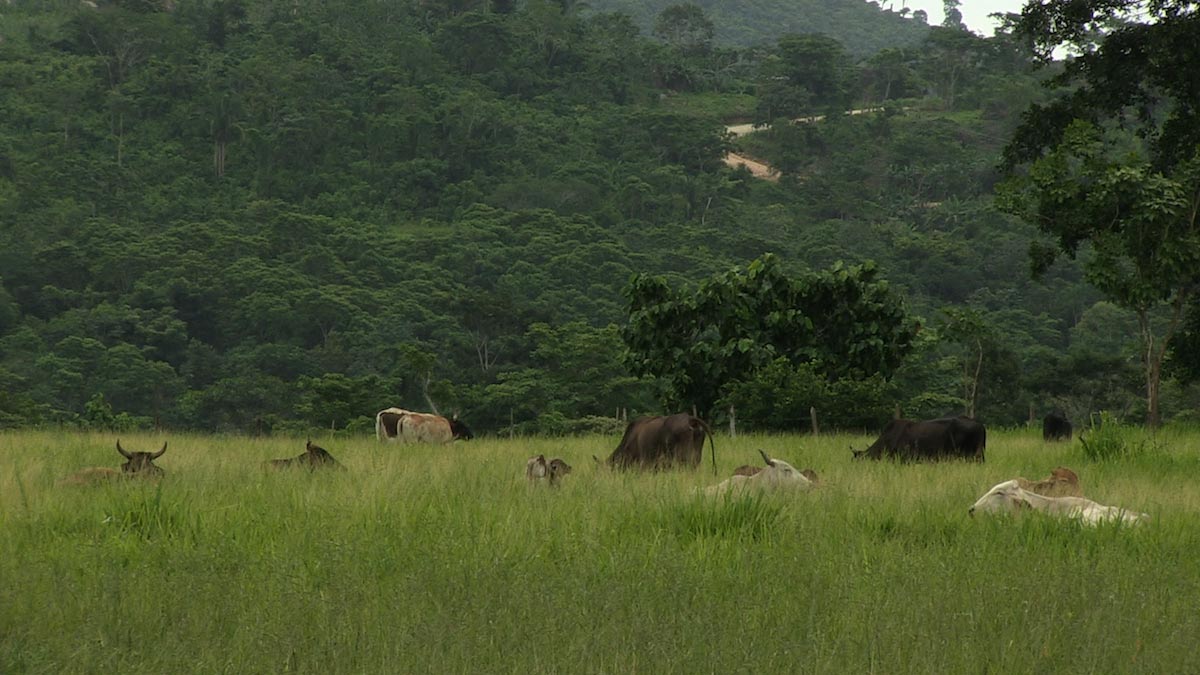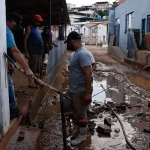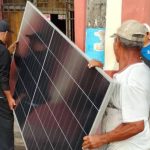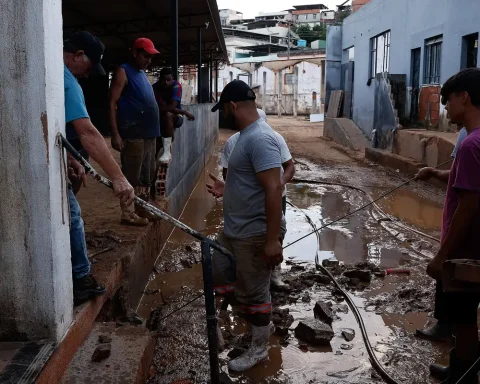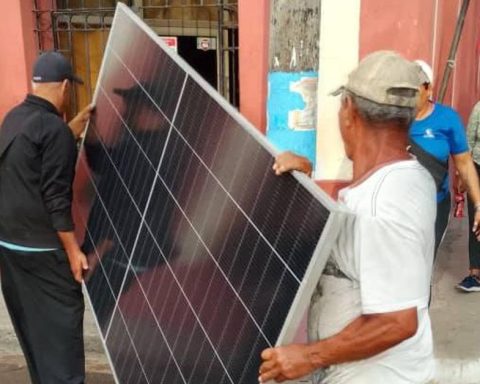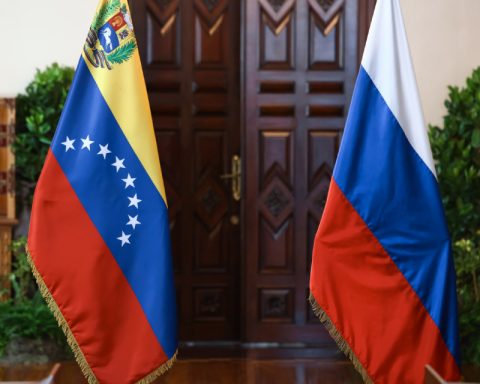With the massive closure of NGOs, Daniel Ortega’s regime would have killed almost all the environmental organizations in Nicaragua that worked independently, says environmental activist Amaru Ruiz, director of the canceled Fundación del Río.
“There is no independent environmental organization left in the country. Those that still operate are national and international organizations that have been co-opted by the regime, as in the case of Flora and Fauna International”, he denounces.
As he explains, the international organizations that have decided to continue their work in Nicaragua have been intervened. “They changed practically all of their personnel and aligned themselves with the regime’s policies. For this reason, countless turtles recently died and Flora and Fauna International, its main activity being the protection of sea turtles, said absolutely nothing. That shows you that there is a silence in the new intervention processes of the international environmental organizations that remain”.
Meanwhile, national organizations have chosen not to comment on environmental deterioration for fear of the persecution that occurs towards organizations that question the regime, Ruiz believes.
In the first eight months of 2022, the Daniel Ortega regime eliminated the legal status of 60 foundations and non-profit associations that worked for the environment. This figure can rise to 70, according to a projection made by Ruíz. The closure of these spaces occurs in parallel to the signing of agreements and conventions on ecological matters that will serve Ortega to access “green funds”.
Regime “passes the bill” to environmental organizations
A data analysis done by CONFIDENTIAL reveals that from November 29, 2018 to September 7, 2022, the Ortega regime has eliminated the registry of operation and legal status of 1,881 civil society organizations.
Of this figure, only in the first nine months of 2022, 60 environmental NGOs were eliminated, 39 of these had between 21 and 30 years of developing projects in Nicaragua, 17 were between eleven and twenty years old, three had less than a decade and two between 31 and 40 years old.
These developed environmental policy initiatives, preservation of natural reserves, water treatment programs, reforestation, sustainable agriculture programs and also associations of agroforestry, forest rescue and zoos in different parts of the country.
The environmentalist believes that by closing these spaces, the regime is trying to silence the environmental sector that denounces the mismanagement of resources and opposed projects such as the Interoceanic Canal. “In a way, it is a punishment for the environmental and academic organizations that also opposed it, such as the Nicaraguan Academy of Sciences, which also opposed mega projects like these and the deterioration of the country’s natural environmental resources,” he says.
The month in which there was the most closure of environmental NGOs was June, a total of 21 cancellations of legal entities were reported, including the Foundation for the Development of Private Wildlife Reserves of Nicaragua, with a 20-year history; the Cordillera Verde Foundation, 19 years old; the Foundation for the Defense of Water, 26 years; among other.
The second month with the most cancellations by environmental organizations was August. Up to 16 NGOs have been reported eliminated: Movement for the Defense of the Environment, founded in 1996; the Association of Community Park Rangers of Mahogany, from 2001; the Nicaraguan Environmental Movement, from 1990; the Nicaraguan Foundation for Responsible Environmental Development, 1997; the Association of Foresters of Nicaragua, 1991 and the United Association of Forestry Producers of San José de Cusmapa, of 1993.
Also the Puerto Cabezas Communal Nursery Civil Foundation, the Friends Foundation for the Ecological Protection of Laguna de Apoyo, the Community Association for the Development of Drinking Water Projects in La Poma, the Association for the Development of the Esperanza Verde Reserve, among others. others.
In July 2022 there were 13 environmental associations eliminated, in May nine and in March one. These include the Association of Peasant Protectors of Bosawas, the Foundation for Forest Restoration of the South Atlantic Autonomous Region, the Cosigüina Foundation, the Association of Friends of Life of Lake Apanás and Bosawas, the Foundation for the Defense of Water, the Foundation for the Restoration and Environmental Sustainability, among others.
One of the environmental organizations that had the greatest impact was the Humboldt Center, which last April it would celebrate 32 years of operation. During this time it worked together with 190 communities. Only thirteen of these benefited 3,581 people with the drilling of six wells and the rehabilitation of seven, according to the 2020 annual report.
They fear a repetition of the situation in Haiti
Given the context of silence and repression imposed by the regime, the expert warns that there is a fear that Nicaragua will be left without forests, as happened in Haiti, given the increase in poverty and the destruction of natural resources.
“When people are left with no other alternative, where they have canceled the legal status of more than 1,800 organizations -which generated a community development process, which served vulnerable groups and were left in response to the conditions of poverty experienced by the population- generate an increase in the destruction of natural resources as we have already seen in Haiti, which has no forest”, he warns.
This destruction of resources would generate a chain reaction, since by destroying the resources several ecosystem services will be affected, such as access to drinking water.
“If you continue to deteriorate your forest reserves more and more, you are going to have higher levels of water stress, this is already occurring both in the Nueva Segovia area and in the Pacific region of the country, so if there are substantial repercussions on livelihoods that are generated through the services”, he explains.
Regime designated as “the greatest predator” of the environment
A report by Fundación del Río, published last July, revealed that the Ortega government has been the most predatory of the environment. During the last 16 years, which he has governed consecutively, he has ceded 782,628 hectares to mining, which represents 6.5% of the national territory.
Nicaragua is already the country in Central America that has the largest number of mining concessions in indigenous and Afro-descendant territories.
A journalistic investigation by the Organized Crime and Corruption Reporting Project (OCCRP) revealed in 2021 how the corruption of the Government of Daniel Ortega and Rosario Murillo fuels deforestation in the country by granting forestry permits to politically connected companies; while indigenous communities have been marginalized.
Despite this, the Ortega regime signs agreements and conventions to access the millionaire resources established in the so-called “green funds”, destined for emerging nations without the capacity to finance friendly policies with the environment.
